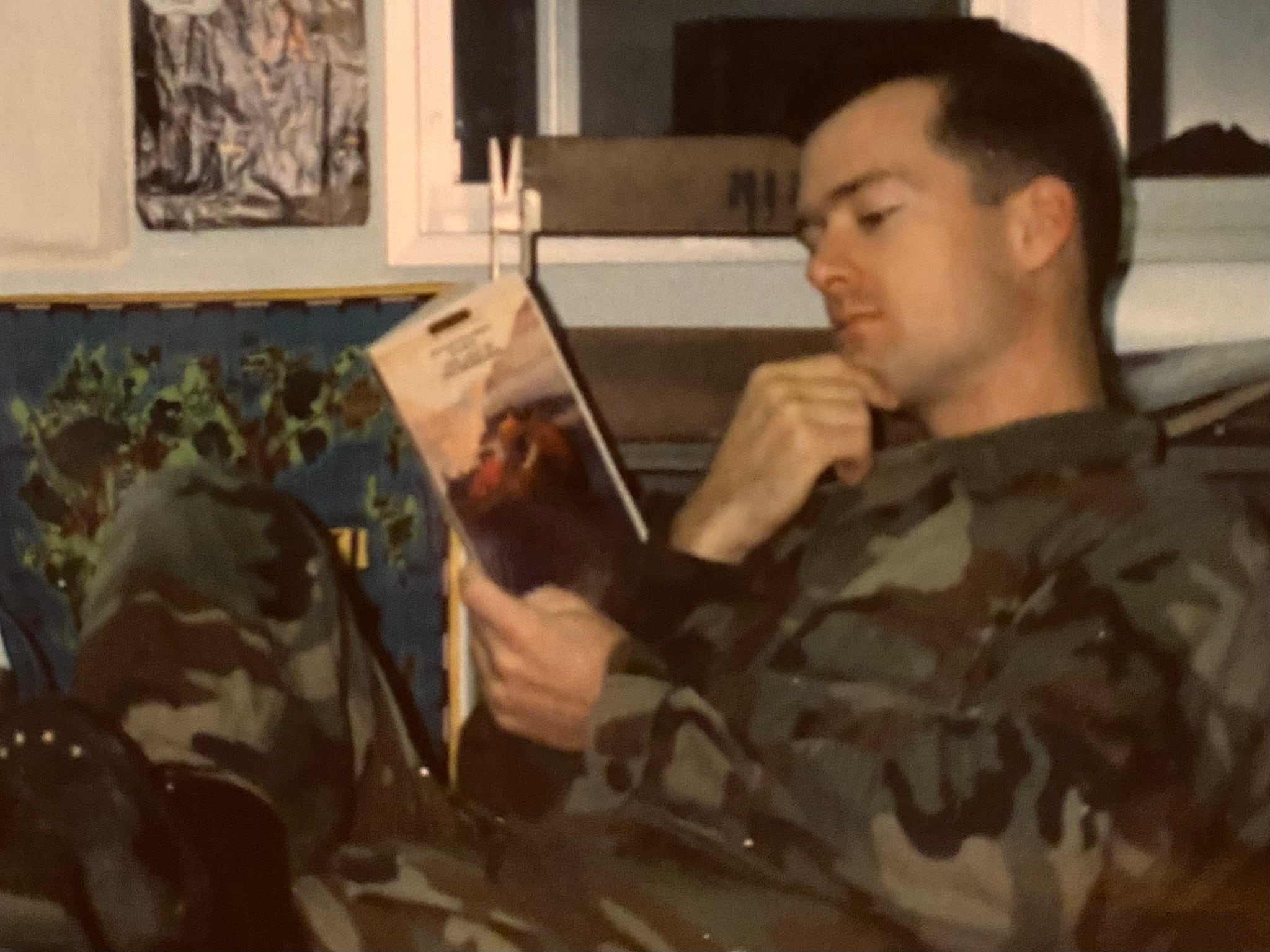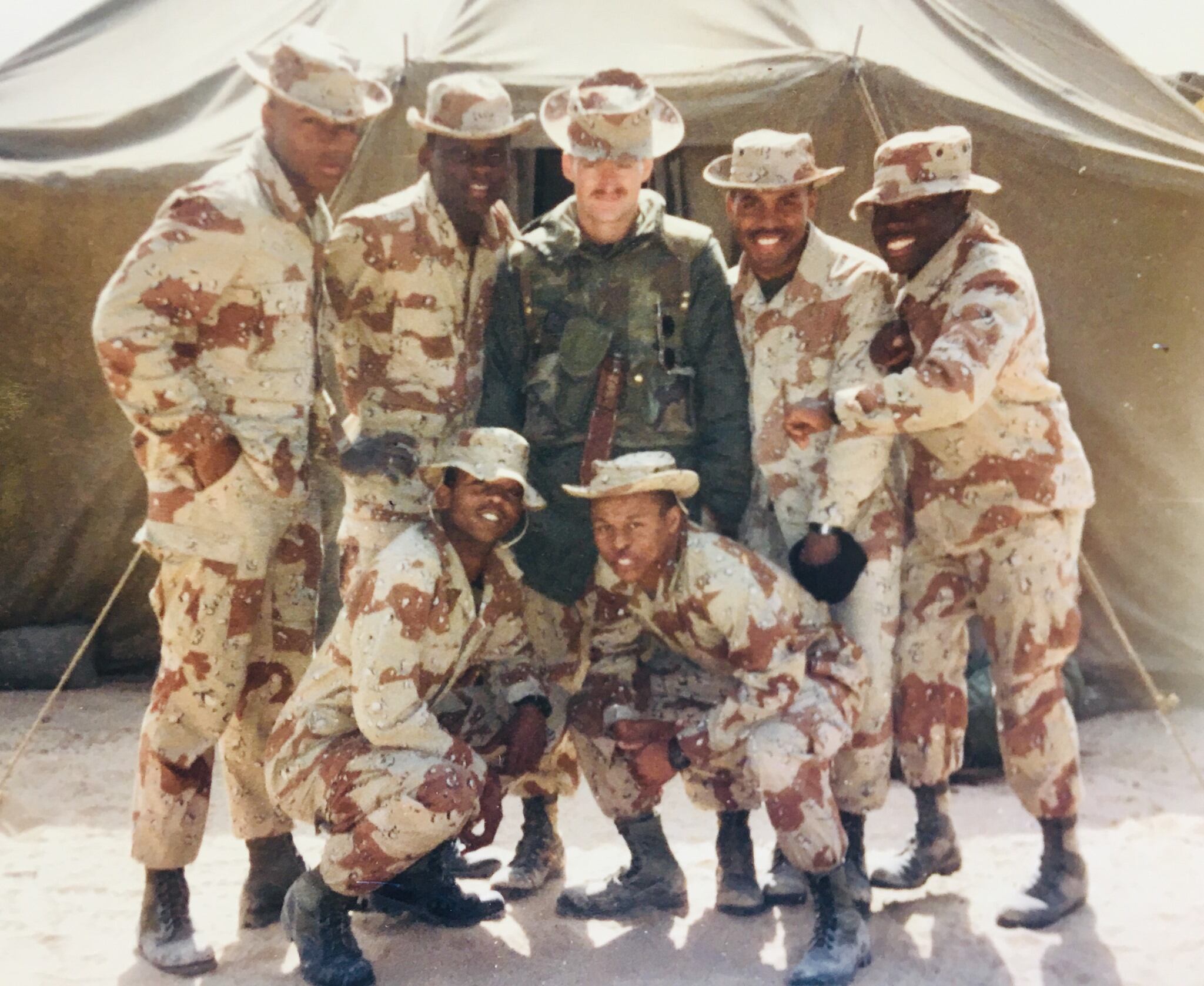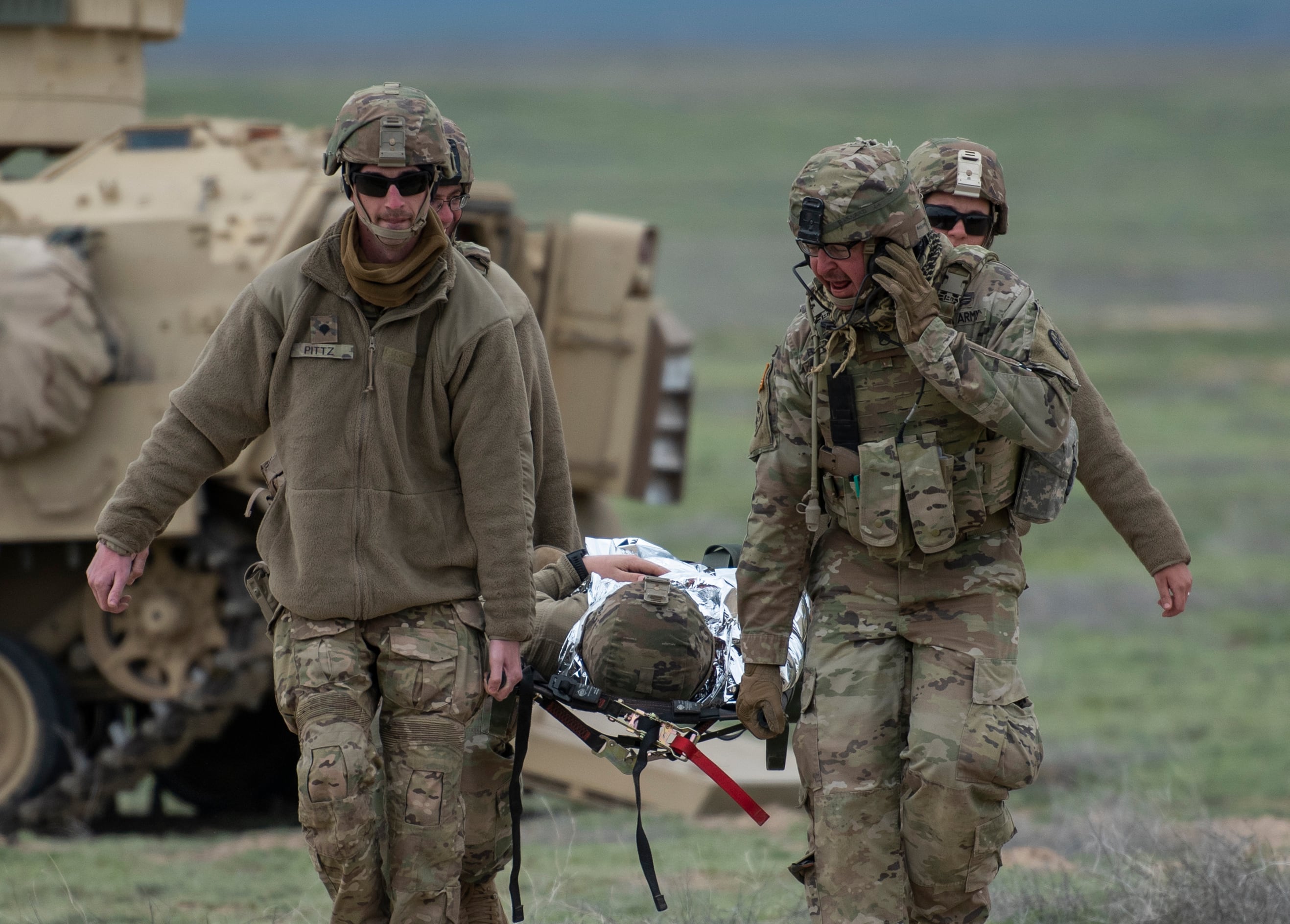Decades ago, when a young Brian O’Hare departed Upper St. Clair, Pennsylvania to step on the yellow footprints he could hardly imagine that he’d sit next to legendary military veteran authors from another generation.
But that’s exactly what O’Hare, a Marine Corps veteran and award-winning author in his own right, is doing this weekend. The former Marine officer will hear his words and those of Vietnam War veterans-turned authors Tim O’Brien, author of the iconic “The Things They Carried” Vietnam short story collection, among other titles, and Tobias Wolff, author of “This Boy’s Life” and his own Vietnam memoir, “In Pharaoh’s Army.”
The three authors along with other veteran authors will hold court at the American Legion Post 43 in Hollywood, California in partnership with WORDTheatre to commemorate the 50th anniversary of the end of the Vietnam War on Saturday.
O’Hare spoke with Marine Corps Times recently about his time in the Corps in the late 1980s and early 1990s and writing a series of stories that became the collection, “Surrender,” which was published in 2022 and won the Veterans Writing Award.
*Editor’s Note: The following Q&A has been edited for length and clarity.
Q: What led you to join the Marine Corps?
A: I grew up in suburban Pittsburgh in the early 1980s. I played high school football for the winningest high school coach at the time, he was kind of a God in that area. My father was a Marine aviator who flew F4 Phantoms in the Vietnam War. He was the coolest guy in the world. Those role models took up a lot of space physically and psychologically in my youth. My dad almost bred me to be a Marine.
Q: What were your early years in service like?
A: I went to the U.S. Naval Academy and graduated in 1988. At the time they called the academy the “man factory” but I was not going into the Navy, as great as it is. I wound up being a supply officer in an infantry unit, 2nd Battalion, 3rd Marine Regiment. The job itself was really boring. But my time in the Marine Corps, in particular with this group of Marines in 3rd Marines was utterly transformational. And it sucked at the same time. The best part was during the Persian Gulf War because at least people kind of left you alone a little bit you got to sort of operate on your own. And then I left the military in 1993 as a first lieutenant in my mid-twenties.

Q: Did you write stories at that time or have any plans to become a storyteller?
A: No. I did work producing documentaries, films and commercials but it wasn’t until maybe 2012 or 2013 when I read another Marine veteran’s work, Phil Klay’s “Redeployment,” a collection of short stories centered around his time serving in Iraq. That was the first time that something just clicked in my head, it was like, ‘oh, I want to do this.’ Phil ended up being a judge later for the Veterans Writing Award.
Q: Your stories have an air of Klay also of Anthony Swofford’s novel “Jarhead” about his time in the Persian Gulf War, how is it to depict the Marine Corps in fiction?
A: I hope it kind of came through that in some ways it’s like this perfectly functioning organization, it’s so good at what it does, like destroy the enemy. It’s unparalleled. And it passes on its culture. For me being fascinated by the mythology of the Marine Corps, that’s the thing that amazes me the most. Individual Marines, me, even the commandant, we’re all totally expendable. But the Marine Corps is immortal, the organization is kind of like a religious order, it’s the thing that’s going to live forever and it lives on in us. There are very few organizations that understand their mythology like the Marine Corps does.
Q: Any advice for aspiring writers, especially Marines?
A: You must read, write and be patient. Read constantly and read challenging works and then just sit your ass down and write. That’s the only way to learn how to do it, that’s by doing it.

Q: How does your writing about the Corps now struggle with that mythology?
A: I guess part of my writing is reconciling. For a somewhat cynical, optimistic 56-year-old man, there’s not a lot in the world that I have not seen before. There’s not a lot that possesses a lot of magic for me. But yet, I’m still a true believer in the Marine Corps. And that blows my mind. So, a lot of the writing comes from that dichotomy between what I know and what I experienced. And what, you know, makes the hair on my arm stand up, you know the 8th and I parade, the Marine Corps Hymn. I see a Marine someplace and I get stupid. It’s like I’m 11 years old again. My experience with the Marines changed the way I saw the world. I wouldn’t be the man, the artist, the writer, the father I am today if I hadn’t had that connection with those Marines.
*CORRECTION: A previously published version of this article incorrectly identified the hometown of the author.
Todd South has written about crime, courts, government and the military for multiple publications since 2004 and was named a 2014 Pulitzer finalist for a co-written project on witness intimidation. Todd is a Marine veteran of the Iraq War.





